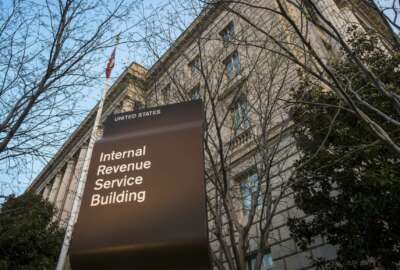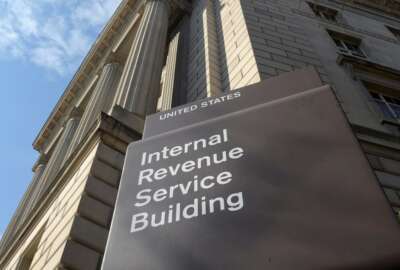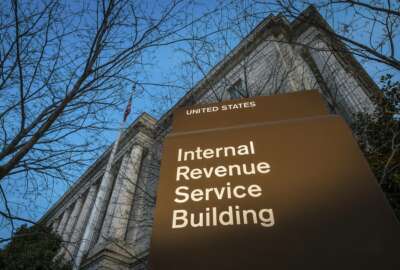
SSA board urges moving death records to Treasury to stem coronavirus payments to deceased
Dead people are getting coronavirus stimulus payments, and a bipartisan group of lawmakers has asked the Treasury Department, IRS and Social Security Administration...
Dead people are getting coronavirus stimulus payments, and a bipartisan group of lawmakers has asked the Treasury Department, IRS and Social Security Administration what they can do to stop it.
While improper payments remain a long-standing challenge for public-facing agencies, the Social Security Advisory Board on Thursday, following reports of pandemic funds going to the deceased, reiterated its recommendation to Congress that it shift the responsibility of federal death data collection from SSA to Treasury’s Do Not Pay portal to help stop payments to the deceased.
The Do Not Pay portal allows other agencies to check against it before issuing benefits, and already does some of the program integrity work done by SSA. Moving death data collection and dissemination to that portal, the board wrote, would reduce duplication and prevent improper payments.
“Erroneous payments to those who are deceased cause undue burdens for families who already face unprecedented challenges due to COVID-19,” Kim Hildred, the board’s chairwoman, said in a statement. “We urge Congress to consider the Board’s recommendation to shift death data collection to Treasury’s Do Not Pay portal to better avoid improper payments, strengthen the integrity of death data and avoid duplicative efforts.”
The migration would be no small feat, and would likely take years to upgrade systems to store the death data at Treasury and transfer death reports directly reported to the Do Not Pay portal.
Last week, Sens. Tom Carper (D-Del.) and John Kennedy (R-La.) joined Reps. Cheri Bustos (D-Ill.) and Greg Gianforte (R-Mont.) in asking Treasury and the IRS how many pandemic payments have gone to the deceased, and what they’ll do to get those payments back.
Last year, the lawmakers introduced the Stopping Improper Payments to Deceased People Act, which would grant federal agencies access to the full set of the Social Security Administration death records, including state-reported death data.
“As you know, SSA maintains the most complete federal database of individuals who are reported to have died. However, only a small number of federal agencies have access to this official list,” the lawmakers wrote. “To date, those without access include Treasury’s Do Not Pay working system, the government’s centralized no-cost data analytics tool, which helps federal agencies detect and prevent improper payments.”
The Government Accountability Office estimates that the agency paid out $175 billion improper payments last fiscal year, and since 2003, agencies have paid about $1.7 trillion in improper payments.
SSA pays state records agencies millions of dollars each year to gather their automated death data, which the agency considers more accurate than death reports from federal agencies or other sources.
Meanwhile, the agency interprets the Social Security Act as preventing it from sharing the cost of that state data with other federal agencies, and the law also prohibits sharing states’ data with the private sector and most federal agencies.
“Given the significant demands placed on SSA to administer its programs and the agency’s limited resources, as well as the limitations on its ability to share death data more broadly, SSA should not be responsible for collecting and disseminating death data to the entire federal government when there is another, better option,” the board wrote in the report it issued last year.
Pandemic payments move to printed checks
The IRS has sent out more than 130 million pandemic stimulus payments, and the Treasury Department is gearing up to deliver millions more in the coming weeks.
It spent the past few weeks encouraging taxpayers to submit their direct deposit information to an online portal, if they hadn’t already submitted that information this year or in last year’s tax filing.
Taxpayers had until noon on May 13 to submit this direct deposit information and receive their pandemic payment via direct deposit.
The IRS will now work with the Bureau of the Fiscal Service to issue paper checks. Taxpayers will receive those checks through late May and into June.
To ensure that eligible taxpayers receive payments, the IRS has launched an outreach campaign and partnered with other agencies to share awareness.
As part of this effort, the IRS has been working with other federal agencies to share information, including the Veterans Affairs Department and the Consumer Financial Protection Bureau.
The IRS has also worked with the Federal Deposit Insurance Corporation to help people without bank accounts obtain pandemic stimulus payments.
NTEU calls for further extending filing season
With the added workload of issuing pandemic payments and the challenge of bringing non-telework eligible taxpayers back to the office, the National Treasury Employees Union is calling on the IRS to push back the tax filing season once again – from July 15 to Oct. 15.
About 44% of the IRS has teleworked during throughout the pandemic. However, some jobs are not telework-eligible, and the agency has sought to bring more employees back into the office to handle work related to the tax filing season.
The agency so far has asked about 11,000 employees to volunteer to return back to the office, and have offered pay incentives for those that do so.
NTEU President Tony Reardon said automatically extending the deadline for everyone this year would help protect IRS employees.
“With less of a time crunch, the agency can gradually ramp up agency operations in a way that keeps employees at a safe physical distance from each other at the workplace,” Reardon said. “It also buys the agency more time to acquire adequate supplies of personal protective equipment and build work schedules that allow for thorough cleaning and disinfecting between shifts.”
Copyright © 2025 Federal News Network. All rights reserved. This website is not intended for users located within the European Economic Area.
Jory Heckman is a reporter at Federal News Network covering U.S. Postal Service, IRS, big data and technology issues.
Follow @jheckmanWFED
Related Stories





